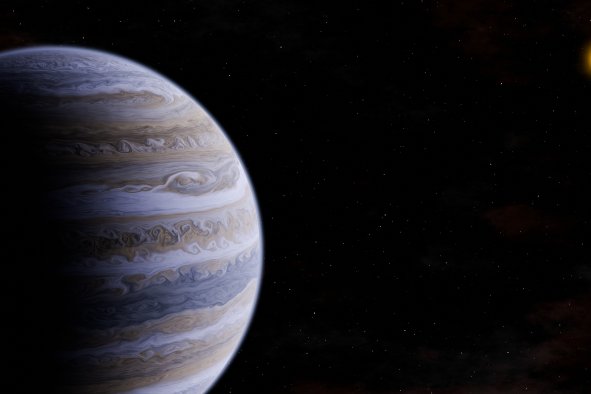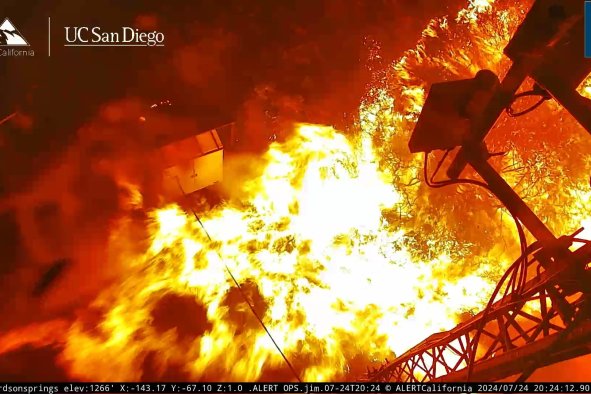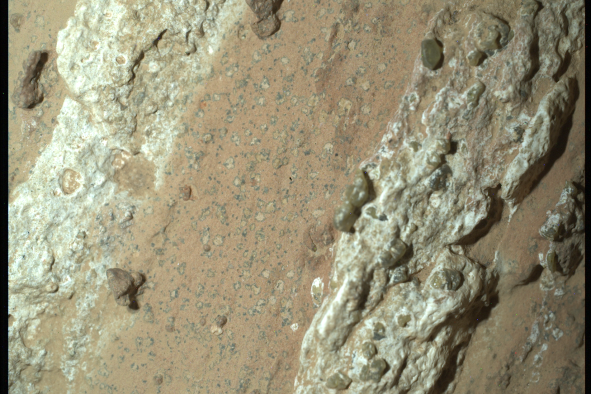A yacht navigating the Strait of Gibraltar recently sank after a pod of orcas launched a dramatic attack, marking the latest incident in a series of troubling encounters with these killer whales.
Robert Powell, the British yachtsman affected, said that "these (orcas) were not playing" and described the attack as "well-organized and coordinated" in a social media post.
Powell and two other occupants of the yacht, called Bonhomie William, had to be rescued by Spanish coastguards on Wednesday 24 after orcas disabled the vessel's steering and subjected it to severe buffeting.
However, Volker Deecke, a professor of wildlife conservation at the University of Cumbria, told Newsweek that there is "no evidence whatsoever" indicating that this behavior is aggressive or that orcas are deliberately trying to sink boats they encounter.
A spokesperson for the Spanish Coastguard Service said in a statement: "Yesterday evening a yacht called Bonhomme William which was two miles off Camarinal Cape between Tarifa and Barbate reported that after interaction with orcas she needed to be towed as her steering system was inoperative."
Powell and his two crew members first reached out to Spanish authorities for a tow after the initial orca attack disabled their rudder. Spanish officials began preparing the rescue boat Salvamar Enif, but Bonhomme William's crew later reported that the orcas had returned and the vessel was taking on water.
By the time Salvamar Enif arrived, Bonhomme William had sunk below its waterline, prompting the crew to deploy their life raft. Fortunately, Powell and his crew were rescued unharmed. Spanish authorities collected contaminating liquids, a radio beacon, the life raft, and other flares before transporting the crew to Barbate, having witnessed the vessel sink.
This incident follows a similar event just three months ago in the Strait of Gibraltar, where a group of orcas intercepted and sank a sailing yacht in Moroccan waters. Two crew members onboard the vessel were ultimately rescued by a passing oil tanker.
There have been theories raised by scientists, including biologist Alfredo López Fernández from the University of Santiago, that this behavior toward boats may stem from a traumatic event that changed one orca's behavior, which others have imitated. Fernández suggests that an orca injured by a vessel may have prompted its family to take revenge.
Professor Volker Deecke said: "When looking at underwater footage of the whales interacting with these boats, we don't witness the typical behavior that we would expect to see in an aggressive encounter. The whales appear extremely calm and relaxed with no signs of agitation."
"Hence, we try and avoid the word attack. There is no evidence for things like revenge or negative interpretations. Our best guess is that this is some sort of play activity and it tends to be the more juvenile animals that exhibit this behavior."
As Deecke observes, the orcas interacting with boats are usually from 3 to 15 years old, rather than very young calves.
He notes that one possible motivation seems to be targeting the boat's rudder, explaining, "When the rudder is gone, they leave the boat alone—so that seems to be the object of their desire."
However, Deecke emphasizes that the whales are not actively seeking out boats to interact with. They make contact only when yachts cross their path and do not venture out of their usual feeding areas to find and engage with boats.
Essentially, the interactions occur opportunistically rather than through deliberate pursuit. As Deecke puts it, "They engage when the opportunity arises, but they are not going out of their way to hunt down boats or sink them."
It also appears that these orcas have distinct preferences regarding the types of boats they interact with and the times of year when they do so.
"There is a very clear pattern of the types of boats that are at risk and it tends to be sailing boats and that is most likely a function of speed. Many motorboats are too fast for the whales to keep up with, whereas a slow-moving sailboat travels at a pace the whales can match."
Seasonally, these incidents are rare in winter, possibly because fewer boats are on the water, Deecke adds.
When they do occur during this time, they are typically in the northern part of the range, such as French waters and the Bay of Biscay. Activity increases in May around the northern tip of Spain in Galicia, followed by encounters along the Portuguese coast. The highest frequency of incidents in the Strait of Gibraltar usually occurs between July and September.
This pattern is closely related to the movement of bluefin tuna, the main prey for these orcas. The tuna enter the Mediterranean to spawn and then migrate through Gibraltar in midsummer, with the timing and locations of orca interactions aligning with the tuna's movements.
For sailing enthusiasts concerned about a potential whale encounter, Deeke offers key advice. "Whales are typically found between two and twenty nautical miles from shore. Simple advice to boaters is to stay very close to shore or, especially in northern Spain, keep well offshore, remain more than twenty nautical miles. If boaters adhere to this, they are reasonably safe and at a very low risk of contact."
Do you have a tip on a science story that Newsweek should be covering? Let us know via science@newsweek.com.
Disclaimer: The copyright of this article belongs to the original author. Reposting this article is solely for the purpose of information dissemination and does not constitute any investment advice. If there is any infringement, please contact us immediately. We will make corrections or deletions as necessary. Thank you.




